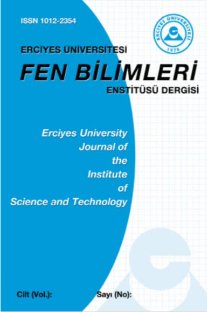Saf ve polimer modifiyeli bitümlü bağlayıcıların karıştırma ve sıkıştırma sıcaklıklarının dönel viskozimetre deneyi ile belirlenmesi
Bitüm, SBS, viskozite, modifikasyon
Determination of the mixing and compacting temperatures of pure and polymer modified binders by rotational viscosimeter test
Bitumen, SBS, viscosity, a modification,
___
- Ahmadinia, E., Zargar, M., Karim, M. R., Abdelaziz, M., Shafigh, P., Using Waste Plastic Bottles as Additive for Stone Mastic Asphalt, Mater Design, 32:4844–49, 2011.
- Al-Hadidy, A. I., Yi-qiu, T., Mechanistic Approach for Polypropylene-Modified Flexible Pavements, Mater Design, 30:1133–40, 2009.
- Birliker, R.Y., Additives can be Added to Bituminous Mixtures and Investigation of Behaviour of This Mixtures and a Prediction Model for Fatigue Curve, Istanbul, PhD Thesis, Istanbul Technical University, Turkish, 1998.
- Geçkil, T., Siyah Karbonun Bitümlü Sıcak Karışımların Özelliklerine Etkisinin İncelenmesi, Doktora Tezi, Fırat Üniversitesi, Fen Bilimleri Enstitüsü, Elazığ, 2008.
- Gorkem, C., Sengoz, B., Predicting Stripping and Moisture Induced Damage of Asphalt Concrete Prepared with Polymer Modified Bitumen and Hydrated Lime. Constr. Build Mater., 23:2227-36, 2009.
- Işıkyakar, G., Polimer Modifiye Asfaltların Reolojik ve Mekanik Özelliklerinin Belirlenmesinde Fluoresan Mikroskobi Yönteminin Kullanımı, Yüksek Lisans Tezi, Dokuz Eylül Üniversitesi Fen Bilimleri Enstitüsü, İzmir, 2009.
- Khodaii, A., Mehrara, A., Evaluation of Permanent Deformation of Unmodified and SBS Modified Asphalt Mixtures Using Dynamic Creep Test, Constr Build Mater., 23:2586-92, 2009.
- Kok, B.,V., Yilmaz, M., The Effects of Using Lime and Styrene–Butadiene–Styrene on Moisture Sensitivity Resistance of Hot Mix Asphalt, Constr. Build Mater., 23:1999-2006, 2009.
- Lu, X., Isacsson, U., Rheological Characterization of Styrene–Butadiene–Styrene Copolymer Modified Bitumens, J. Construct. Building Mater., 11(1), 1997.
- Mcgennis, R. B., Shuler, S., Bahia, H. U., Background of Superpave Asphalt Bınder Test Methods, Report No: FHWA-SA-94-069, p:104, 1994.
- Ozen, H., Rutting Evaluation of Hydrated Lime and SBS Modified Asphalt Mixtures for Laboratory and Field Compacted Samples, Constr. Build. Mater., 25:756-65, 2011.
- Roque, R., Birgisson, B., Drakos, C., Sholar, G., Guidelines for Use of Modified Binders, Florida Department of Transportation Project Number: 49104504-964-12, 2005.
- Ullidtz, P., Pavement Analysis, Elsevier, pp. 318, Amsterdam, 1987.
- Wong, W.G., Han, H., He, G., Wang, K.C.P., Lu, W., Rutting Response of Hot-Mix Asphalt to Generalized Dynamic Shear Moduli of Asphalt Binder, Constr. Build. Mater., 18:399-408, 2004.
- Yilmaz, M., Kok, B.V., Effects of Ferrochromium Slag with Neat and Polymer Modified Binders in Hot Bituminous Mix, Indian J. Eng. Mater., S:16, 310-8, 2009.
- Zaniewski, J. P., Pumphrey, M. E., Evaluation of Performance Graded Asphalt Binder Equipment and Testing Protocol, Asphalt Technology Program, p:107, 2004.
- ISSN: 1012-2354
- Yayın Aralığı: Yılda 3 Sayı
- Başlangıç: 1985
- Yayıncı: Erciyes Üniversitesi
Optik örgü kumaşların sararma problemleri
Meliha Oktav BULUT, Yasemin AKBULUT
Zehra KAYA, Naciye Gülkız ŞENLER
Doğal gaz ve petrol sistemlerinden kaynaklanan metan emisyonlarının analizi: 1990– 2010
Gökhan AYDIN, İzzet KARAKURT, Kerim AYDINER
3.6 kW gücündeki fotovoltaik generatörünmatlab simulink ile modellenmesi
Elastan iplik içeren örme kumaşların yağ sökme işleminin incelenmesi
Meliha OKTAV BULUT, Kadri AKÇALI
Taner ALATAŞ, Mustafa Ethem KİZİRGİL
